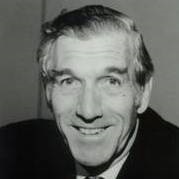![[Audio Only] EP85 Workshop 18 - Brief Therapeutic Interventions - Paul Watzlawick, Ph.D.](https://illedu.info/wp-content/uploads/2021/05/Bk3vPYzMr02hHCrj4JKW-w-200.jpg)
[Audio Only] EP85 Workshop 18 – Brief Therapeutic Interventions – Paul Watzlawick, Ph.D.
Salepage : [Audio Only] EP85 Workshop 18 – Brief Therapeutic Interventions – Paul Watzlawick, Ph.D.
Archive : [Audio Only] EP85 Workshop 18 – Brief Therapeutic Interventions – Paul Watzlawick, Ph.D. Digital Download
Delivery : Digital Download Immediately
- Topic Areas:
- Workshop
- Category:
- Evolution of Psychotherapy | Evolution of Psychotherapy 1985
- Faculty:
- Paul Watzlawick, PhD
- Course Levels:
- Master Degree or Higher in Health-Related Field
- Duration:
- 2:36:19
- Format:
- Audio Only
- Original Program Date :
- Dec 13, 1985
Description
Description:
An introduction to the brief therapy techniques developed at Mental Research Institute; sound and videotaped examples of such interventions from actual therapy sessions.
Educational Objectives:
- To list three major categories of therapeutic interventions, with special attention to the patient’s resistance to change
- To describe the difference between the indicative language (the language of description, interpretation, etc.) used in traditional therapy, and the injunctive, performative language applied in behavior prescriptions
*Sessions may be edited for content and to preserve confidentiality*
Faculty

Paul Watzlawick, PhD Related seminars and products: 35
Paul Watzlawick, received his Ph.D. from the University of Venice in 1949. He has an Analyst’s Diploma from the C.G. Jung Institute for Analytic Psychology in Zurich. Watzlawick has practiced psychotherapy for more than 30 years. He was research associate and principal investigator at the Mental Research Institute. He was Clinical Professor at the Department of Psychiatry and Behavioral Sciences, Stanford University Medical Center. Watzlawick is a noted family therapist; he is recipient of the Distinguished Achievement Award from the American Family Therapy Association. Also, he is author, co-author or editor of eight books on the topics of interactional psychotherapy, human communication and constructivist philosophy.
He formulated five axioms. They are:
- It is not possible to not communicate. Every behavior is some kind of non-verbal communication.
- Every communication has a content. In addition, there is ‘metainformation’, which says how the communicator wants to be understood.
- All partners involved in a communication process also interpret their own behaviour during communication.
- Human communication involves both verbal and non-verbal communication. In addition to the spoken words, there are is also a non-spoken part (gestures, behavior, intonation..) which is part of the communication.
- Communication between humans is either symmetric or complementary. This is based on whether the relationship of those communicating is based on differences or parity.
- Profile at Mental Research Institute.org
More from Categories : Medical

![[Audio Only] EP95 WS36 - Broad Spectrum Treatment of Sexual Dysfunction - Joseph LoPiccolo [Audio Only] EP95 WS36 - Broad Spectrum Treatment of Sexual Dysfunction - Joseph LoPiccolo](https://illedu.info/wp-content/uploads/2021/07/Bk3vPYzMr02hHCrj4JKW-w-200.jpg)












Reviews
There are no reviews yet.